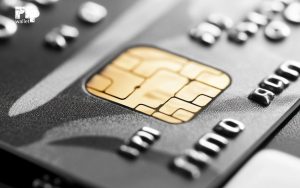You must be wondering what blockchain wallets are. Like your physical wallet helps you keep your money, blockchain wallets allow you to store and manage your crypto asset. With the increase in cryptocurrency adoption, crypto users and enthusiasts need to know what blockchain wallets are. This guide contains all you need to know about blockchain wallets.
Definition of a Blockchain Wallet
Blockchain or crypto wallets are used to secure and manage different cryptocurrencies. Examples of cryptocurrencies held in a crypto wallet are Bitcoin and Ethereum. Aside from cryptocurrencies, blockchain wallets can hold other digital assets. An example is non-fungible tokens (NFTs).
Blockchain wallets are of two types, software and hardware wallets. Software wallets are of different types, including mobile wallets, desktop wallets, and web or crypto exchange wallets. On the other hand, hardware wallets are physical devices used in securing your crypto offline. Below are explanations of the different types of wallets available.
Web-based Wallet
Like wallets hosted by exchanges where you can buy and sell cryptocurrencies, web-based wallets are easy to use. In this type of wallet, security keys are managed and stored by the wallet owner. For instance, if you purchase crypto via Coinbase Global, security keys used in controlling access to the assets are stored in a web-based wallet linked to the internet.
Although there can be some issues with these security keys, like getting hacked, this type of storage remains one of the easiest to buy crypto and manage crypto-related transactions.
Mobile Wallet
Mobile wallets are downloadable software on smartphones and tablets. A large number of these applications are non-hosted. Meaning you will be the one in charge of controlling and managing private key access to your crypto. Examples of common mobile wallets are PTPWallet, AABB Wallet, Coinbase, Mycelium wallet, and Trust wallet.
Most mobile wallets often allow hot storage because they link to an exchange. Although some provide additional security options called cold storage.
Desktop Wallets
Just like mobile wallets, desktop wallets are for PC users. You can easily download it on your PC. Common examples of desktop-oriented apps are; Metamask, Electrum, and Exodus. Most of these desktop wallets offer additional security of cold storage. It is important to note that most desktop wallets are also available as mobile apps.
Examples of wallets with these properties are PTPWallet and AABB Wallet.
Hardware Wallets
Hardware wallets are more like an additional step to the software wallet as it allows you to have access to your digital assets offline. You can store these assets on an offline piece of hardware. This hardware can be connected to a PC via a USB port or other means to transact and transfer your crypto assets.
These types of wallets also allow for cold storage. Currently, hardware wallets are the most secure way of keeping your crypto asset, although you will be responsible for keeping your security keys like private passwords.
What’s the Need for Blockchain Wallet?
Cryptocurrencies are built on a public ledger system and accessed through the internet. Thus, cybersecurity should be on the mind of those willing to use and store cryptocurrencies on a long-term basis. An excellent way to guard against cyber hacking is via crypto wallets like PTPWallet and AABB Wallet.
Blockchain Wallet Operation Mechanism
Most newbie crypto owners believe that crypto assets are stored in their wallets. In the real sense, crypto assets are not stored in your wallet. This is because crypto resides on the blockchain, the digital ledger system used for crypto management and other digital assets. What your blockchain wallet does is give you a digital key, which allows you to manage, control and access the crypto you own.
Features of a Blockchain Wallet
When you set up a blockchain wallet, you will receive two types of keys. The first type is the public key automatically generated while creating the wallet and used in transactions. You can think of it as a web address. This key is what you’ll share with other users while making a purchase, collecting payment, or during the transfer of crypto assets.
The other type of key is the private key which is a password. It would be best to keep this safe since you need it to move your crypto assets. Private keys are what you will use to manage your mobile, desktop wallet, or cold storage hardware wallet.
Using a Blockchain Wallet
After deciding on the type of blockchain wallet you wish to use, the next is to download the application or software, depending on whether it is a mobile or desktop wallet. After download, you will receive a prompt to create security keys, which you would like to save somewhere. In some wallets, you may need to set up two-factor authentication.
The next thing is to transfer your crypto from the exchange you got them from. For example, if you purchase from Coinbase, there’s always an option of sending. Here, you will be required to enter the address of your crypto wallet and the amount you want to send.
Most blockchain wallets like PTPWallet and AABB Wallet are available for free download for users at no cost. However, some wallet providers make money from users from transactions executed.
Wrap Up
Using a crypto wallet like PTPWallet should be the utmost priority for any investor or crypto enthusiast willing to get involved in the crypto space. Whether you are storing access to your crypto assets while busy with other things or plan to use crypto for payments or other transactions, you should use a wallet to keep your digital assets safe.



